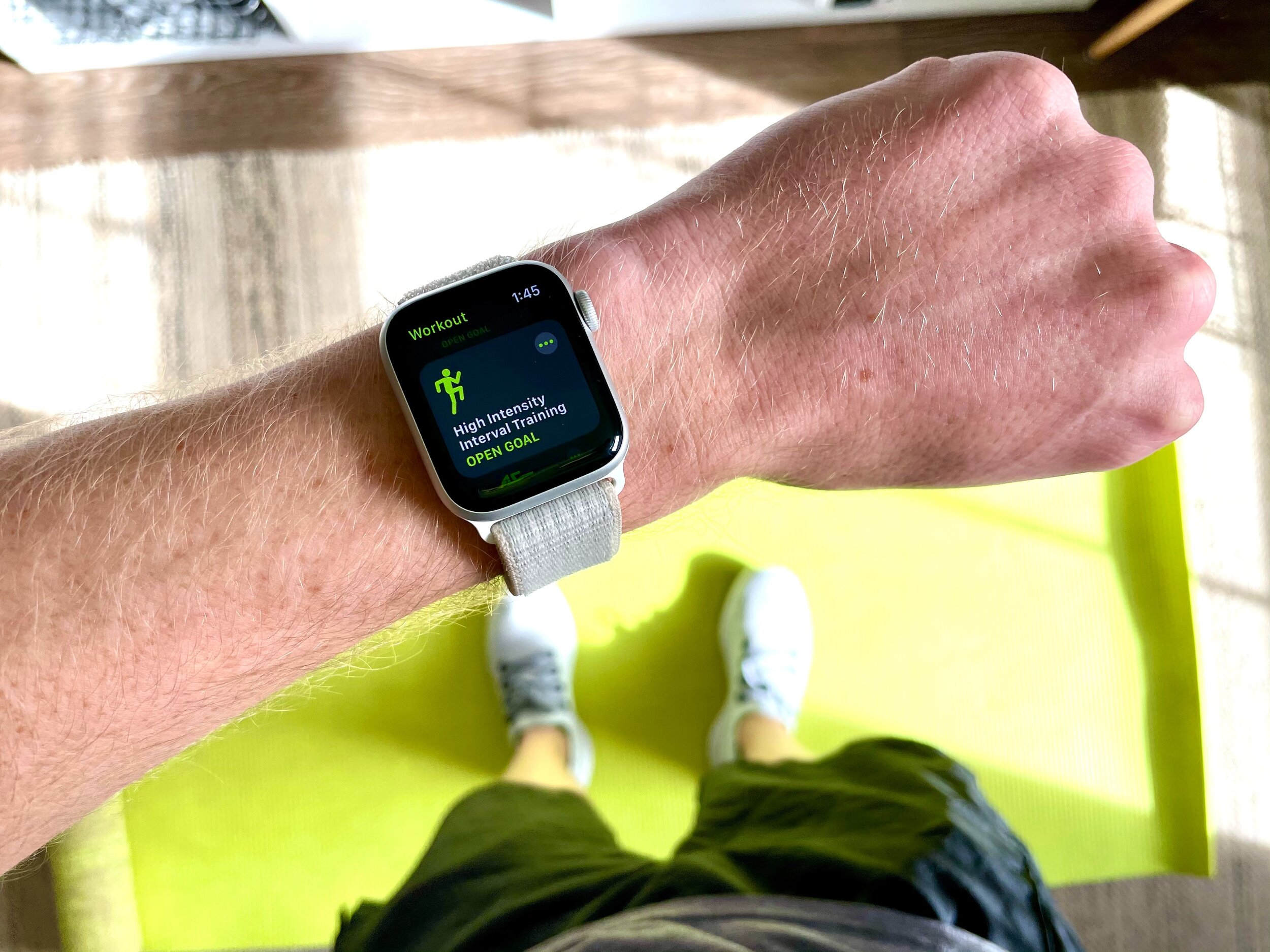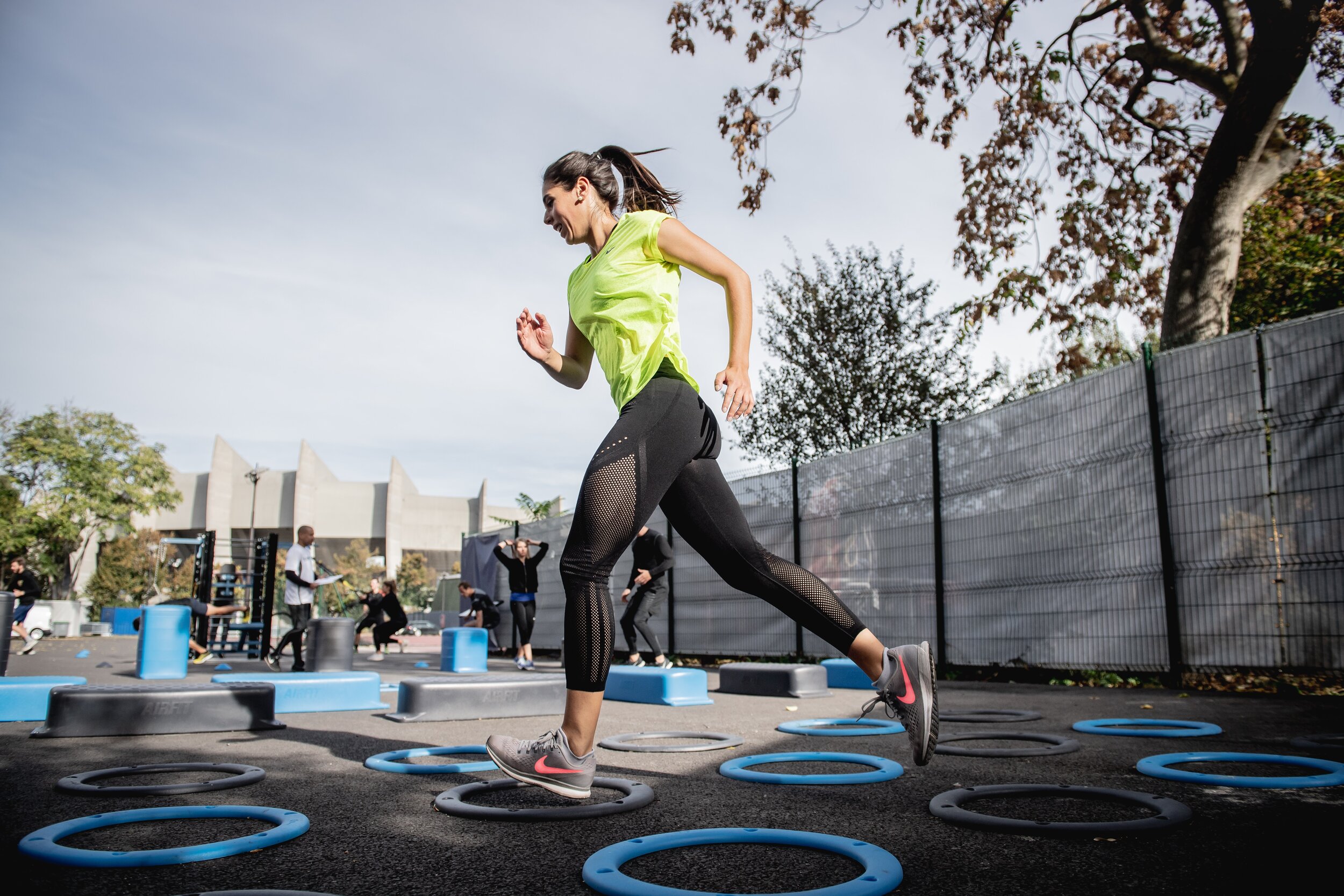#111 - Workout Smarter, Not Harder: The New Way to Train for a Marathon
Are your eyes set on running a full or half marathon? Say goodbye to the old-school method because there’s a better way to train for your race! Follow this new method if you’re ready to workout smarter, not harder. You’re going to crush your goals with less time spent training and more energy on the track using this superior method to marathon training. Instead of painfully pulling yourself through that last mile, you’ll be laughing your way over the finish line and wondering why it was so easy!
Don’t Overdo It Before Running A Race
It’s common practice for runners to over-train and overeat before a race. Most people try to run faster and longer than they’ll need to at the actual event in order to be ready for the big day. It sounds sensible enough, but a new marathon training method challenges this way of thinking. Read on if you’re wondering “how many days a week should I run to train for a marathon?” If you workout smarter, you can spend less time training and still be ready for the big day!
Another common belief is that loading up on carbs before a marathon will give you the fuel needed to get through long distances. However, the more we learn about fueling our bodies on a clean energy diet, the better we can prepare ourselves for running a race.
Stop training so hard in the weeks leading up to a marathon
Two Dutch experts have partnered up to develop a better way to train for a marathon- that doesn’t require as much time and distance as traditional marathon training routines do. Triathlete and 2015 Ironman World Champion Marlies Kort is a hero among mother-runners. (athletes, particularly mothers, who need a workout routine that fits into a busy lifestyle)
In her book, The 9-Mile Marathon, Marlies Kort reworks the old-school race training method that doesn’t allow you to have a life outside of running. Her goal was simple: Set a family-friendly routine that allows you to train easier and prepare you to run a marathon faster. Consistency and discipline is what makes her method so effective. Instead of running everyday for months and months, Marlies Kort devotes a period of 90 days to train for a marathon, during which she runs three times a week. If that wasn’t enough good news, how about this? Virtually all runs will be 9 miles or less for the entirety of this training program.
...And if it works for her, it will work for you! You can adopt a schedule like hers (keep reading for a sample schedule) and join us at Keep Calm And Run To The Best You for the next big race!
Pre-race overeating actually overworks your body
It’s time to ditch the old-school carb-loading tradition that athletes have adopted over the years. Sure, loading up on carbs will provide energy but it will also slow you down and interfere with your body’s natural metabolism. Marlies Kort agrees that it’s better to eat clean foods and keep a balanced diet all the way up to race day. This is how you train your body to burn off your existing fat cells. Why would you overflow the gas tank of your car when you already have what you need in the tank, plus you have a red can filled up in the trunk? The same is true with food. Give your body enough fuel to get through a typical day, and let your existing fat reserves serve as a backup when you’re needing more energy. Don’t stuff yourself with empty carbs before running a marathon. Instead, celebrate after the race with a nice big meal!
Pick up a copy of Marlies Kort’s The 9-Mile Marathon to get details on her new marathon training method. If you have limited time to train, this is a feasible way to get ready for race day!
Use Technology to Tweak Your Running Style/Pace
Whether you love or hate the tech gadgets, as a runner, it’s much easier to improve your running style and pace with a FitBit or AppleWatch. You can even use a digital watch to time yourself and control your pace.
Set an interval timer and use the run, walk, run method
Avoid injury and fatigue by using the Run, Walk, Run method. You have probably heard of HIIT by now, because High Intensity Interval Training has been gaining traction in the workout community for years now. At Keep Calm And Run To The Best You, we use HIIT in our running but we call it Run, Walk, Run. It’s easy and helps you to reserve energy and go farther at a consistent pace. Using an interval timer, we will run for a short time, then take quick walking steps to rest before jumping right back into running. The formula for Run, Walk, Run depends on several factors such as your age, your running experience, and history of injuries. Coach Tadris personally sets his intervals at two-and-a-half-minutes running, followed by 30-seconds of brisk walking.
Pace yourself according to heart rate
Heart Rate Monitor Training is key for runners of any age group. It doesn’t matter if you’re older or younger, or whether you’re watching your heart rate for health reasons. Heart Rate Monitor Training is a mindful approach to keeping your heart beating at a steady rhythm to improve your running time and increase your stamina. Use a heart rate monitor, like the one built-in to your Apple Watch or FitBit, to figure out your resting heart rate and your maximum heart rate.
The recommended target for your heart rate, according to The Mayo Clinic and The American Heart Association, is:
Moderate exercise intensity: 50% to about 70% of your maximum heart rate
Vigorous exercise intensity: 70% to about 85% of your maximum heart rate
Be mindful to pace yourself while running. If you keep your heart rate within the range best for your body, you will increase your stamina and avoid burnout. This is how you should train leading up to a marathon, and will keep the same pace throughout the race.
Upcoming race in Sewell, NJ: Jazmine T Bryant Brighter Day 5k - July 31st, 2021 - click for info
Sample Schedule Inspired by the 9-Mile Marathon
Say you’re planning to run the half marathon at the Atlantic City Marathon event in October. If you want to train like Marlies Kort, here is a sample schedule that you can follow. For the best result, train with Coach Tadris at Keep Calm and Run To The Best You to keep you on track!
The full marathon plan as modeled in the 9-Mile Marathon book, starts you off running 5-7 miles the first few weeks, then bumps you up to 7-9 miles for a few weeks. There is one 13 mile run around the halfway point. then in the final stages of the training are 9 mile runs twice a week with suggested speed drills on Tuesday. The final week leading to your goal race, the long run the weekend before is only 6 miles.
Here is a similar schedule that we’ve adapted for half marathon training, which is 13.1 miles:
Make the Switch to Workout Smarter
This is not a fad or some clever spin on the same old thing. Marlies Kort’s 9-Mile Marathon training is an innovative method that defies conventional thought. After all, how can she possibly run a faster race with less effort, using a lighter training schedule? It doesn’t sound like it should work, but it’s backed by new scientific breakthroughs.
Kort borrows from the research of Dutch medical expert Stans van der Poel, who prioritizes Accumulated Fatigue Avoidance (AFA) and Energy Supply Switch (ESS). If you’re wondering what that means, check this out: AFA means you should run at a pace that provides longevity and stops you from burning out (interval training, “run, walk, run method”, etc.). ESS is what happens when your body exhausts the fuel from what you ate today and switches over to burn the fat cells in your body. So our Run, Walk, Run method and eating for clean energy is in alignment with the same science that inspired Marlies Kort’s marathon training approach!
Coach Tadris can help you to pinpoint your optimal heart rate, based on your age and your maximum heart rate, so you can pace yourself during marathon training. He can also give you an appropriate interval system so you can benefit from the Run, Walk, Run method.
Sign up to train with Coach Tadris and the team for the Atlantic City Marathon, coming up in mid-October. Register for the full marathon, the half marathon, the 10k, or the 5k race. This training will be from July 20th to October 15th, with the race days set on October 16th and 17th.
Let’s go!


